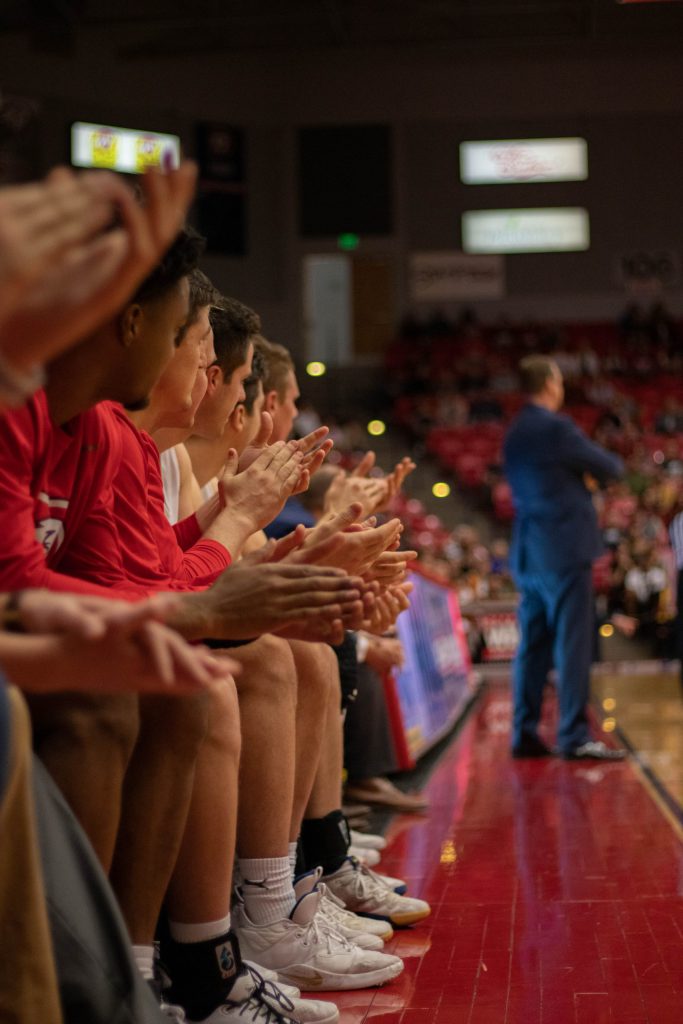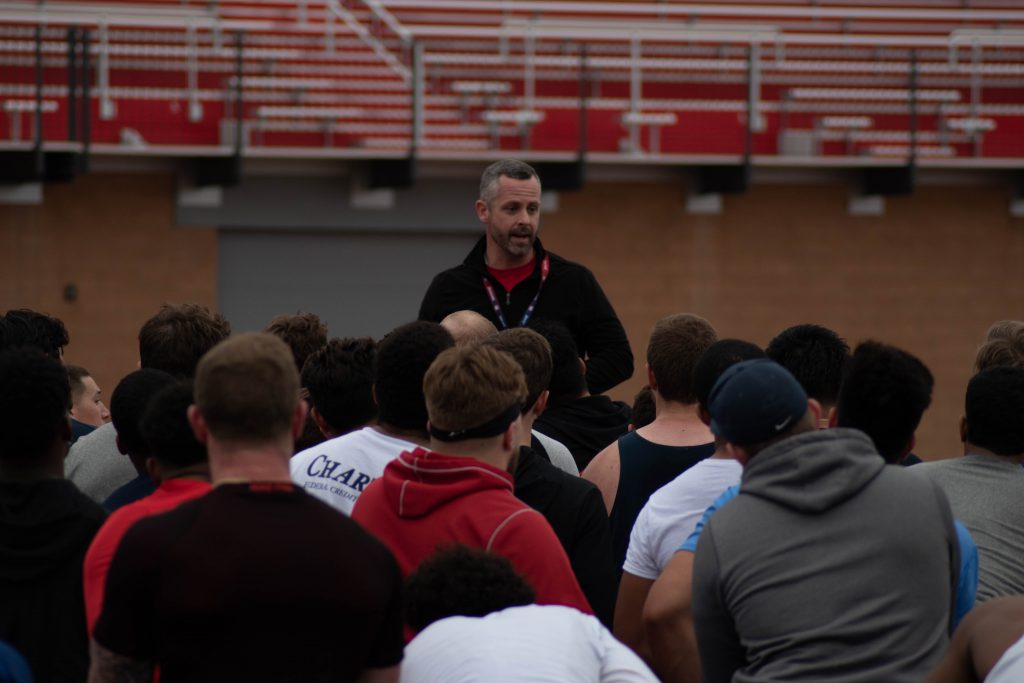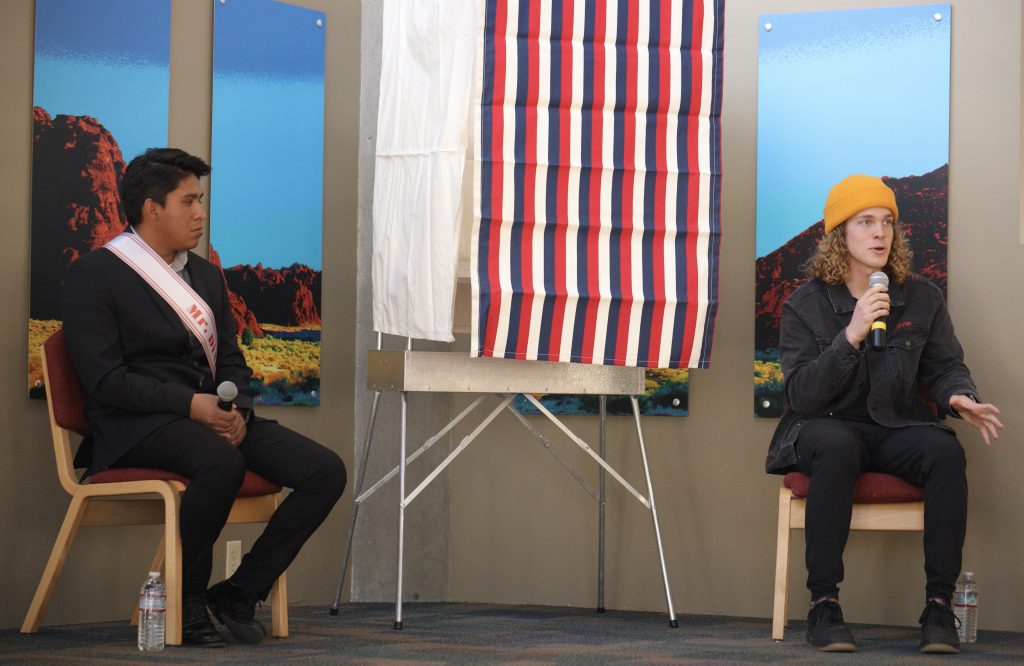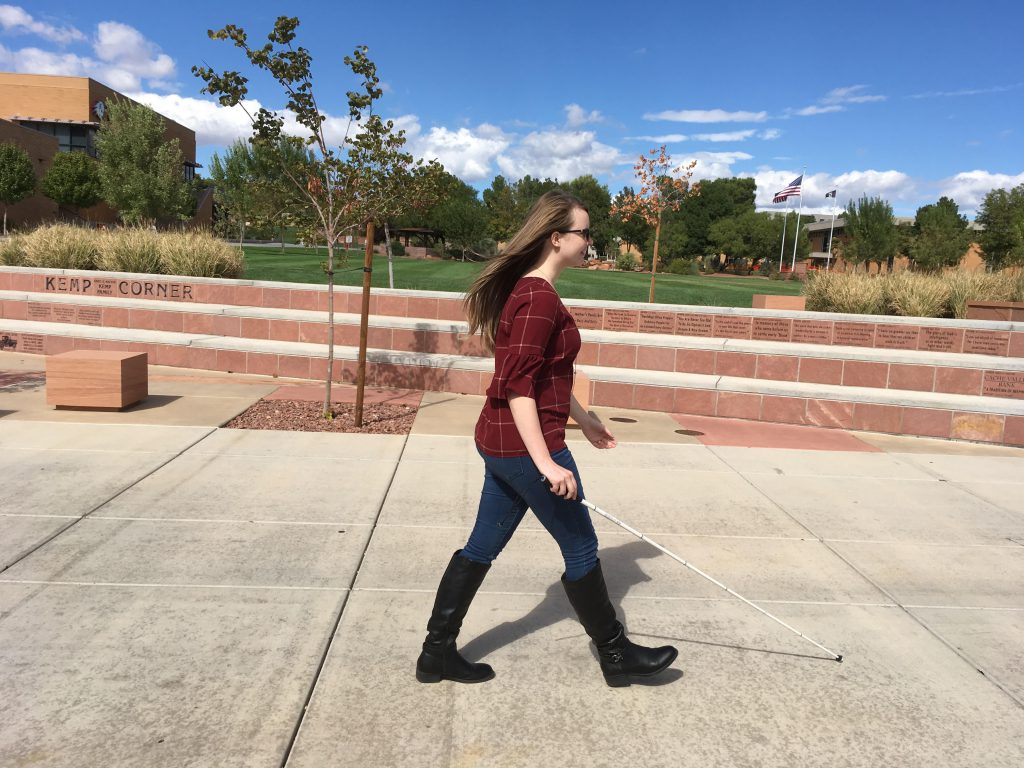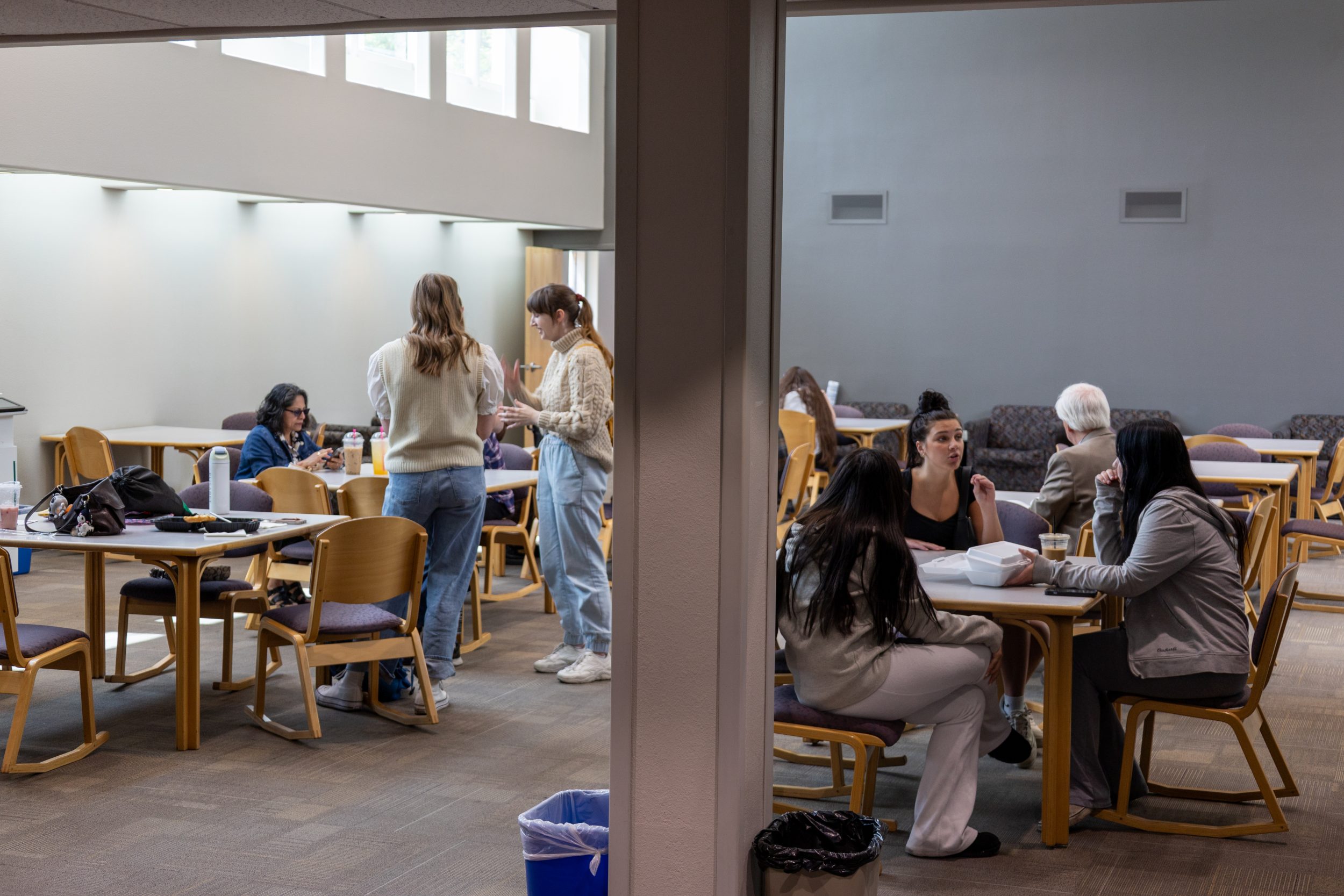The dirt is settling over the first season for two freshmen on Utah Tech University’s softball team. While they are currently sitting in last place in the Western Athletic Conference standings, they have found success in two of their young players who have made massive contributions to the season.
Kinley Pappas and Jorja Crider are freshmen who have each played in at least 30 games and batted .331 and .239, respectively. Each has a fielding percentage of at least .930 and has tallied a combined total of 59 hits between the two of them.
Pappas is a recreation and sports management major from Eugene, Oregon, and has started in 41 of the team’s 45 total games as an outfielder. Her 43 hits are the third most on the team and the best among the freshmen.
She jumped right into fast-pitch softball when she was 12 years old and found success in high school when she and her team won two state championships. She said college softball was always the goal she focused on, and likes how competitive the game is.
“The biggest thing [has been] growing as a person,” she said when asked about what she’s learned the most over her first year. “I feel like I’m finding a lot of lifelong friends… [I’ve not] taken anything for granted.”
Crider, a criminal justice major from Eagle, Idaho, also racked up numerous high school accolades, including 60 career home runs and 5A Player of the Year as a junior. She grew up playing softball with her sisters, usually in the older age group to compete with them. Division I softball was always a dream of hers, and she currently leads the team in home runs with seven.
She picked UT because of its close location to family and said she’s had a great experience in her first year.
“Being thrown in with players that have played at the college level for four years… It’s been an eye-opening experience,” Crider said. “I’ve had to learn. I’ve had to change my mindset. I just think it’s been a really big learning curve.”
With that, she said she’s had to adjust to finding success in other ways than how she originally anticipated and will take that mindset with her for the rest of her life.
Both players spoke on that adjustment to the new atmosphere, which is what the coaching staff focuses on. Assistant coach Jared Anderson spoke on how tradition is one of the big things the coaches want to instill in each freshman who comes into the program.
“They’ve been taught so well,” he said. “They have been so invested into that new system, and once they start to feel that and they can see their role or see their part, good things can happen. They’re tremendous athletes and tremendous individuals.”
The season is winding down for the Trailblazers with the WAC Softball Tournament beginning May 7. The rest of their schedule can be found here.
